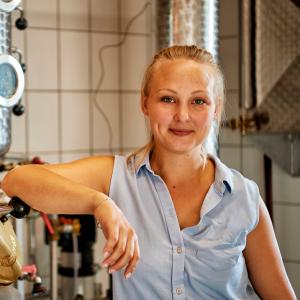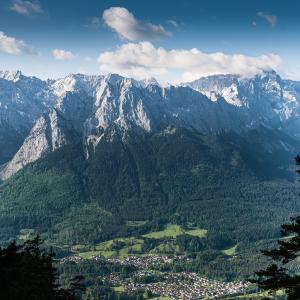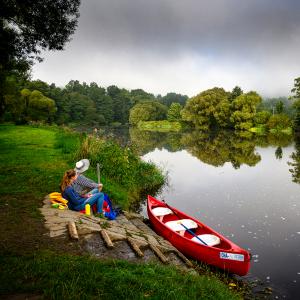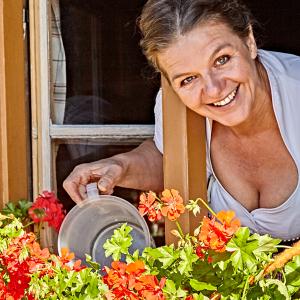Throughout Bavaria, the people are creative and draw inspiration from the traditions of their homeland and ancient skilled crafts. For a very long time, the Free State has been famous for its wood carvings and objets d'art in glass. Yet there is still so much more to discover. All over the state, your customers can watch craftspeople at work.
Makers of violins and plucked string instruments in Mittenwald
The skilled craft of making violins and plucked string instruments in Mittenwald can look back on centuries of tradition. It literally seems to be raining violins there: instruments dangle from window ledges, balconies and all round the terrace of Bavaria's only violin-making school so that they can dry and/or darken in colour. In the violin-makers' museum, your customers can learn everything worth knowing about this old craft.
Glass manufacture in East Bavaria
Since time immemorial, the eastern part of the state has been known for its many glassworks and the long-established tradition of glass blowing. Meanwhile, these have given birth to large enterprises which market their creations all over the world. For example Spiegelau, whose foundation stone lies in a 16th-century glassworks in Neustadt an der Waldnaab. Also famous worldwide is Zwiesel Kristallglas AG, whose products include mouth-blown glass to this very day.
The Nuremberg Artisans' Yard
From goldsmith to pewterer: in the artisans' yard, directly opposite Nuremberg Station, your customers can watch several different kinds of craftsperson at work. The artisans' yard reminds us that Nuremberg was once an important centre of artisanal tradition. So it is that in these little workshops, behind half-timbered façades, old Nuremberg traditions are still kept alive today, such as the manufacture of tin toys and that of dolls.
Wood carving in Oberammergau
In 1520, a Florentine visitor gave account of the extremely detailed wood-carving art that he had discovered in Oberammergau on his travels. From wooden spoons to figures of saints, to this very day, 60 wood carvers make the finest art objects here. Their workshops and ateliers are places where people can meet and exchange opinions and experiences. And they're quite happy to have people watch them while they work too. Some of them, indeed, also offer tutorials.
Nymphenburg Porcelain Factory
The history of this porcelain factory is inseparably associated with that of the Bavarian Wittelsbach dynasty. In 1747, Prince-Elector Max III Joseph inaugurated the electoral porcelain factory in Munich. Today, it is in the stately rooms of Nymphenburg Palace. Porcelain services and figures have been made by hand here since time immemorial.



